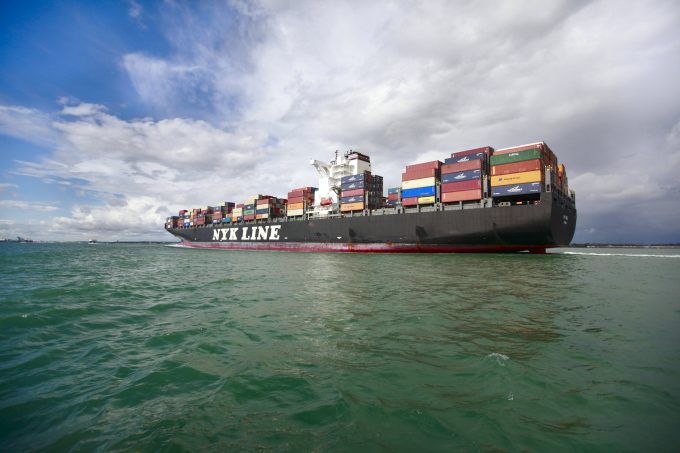HMM leads as South Korea embarks on state-backed box fleet expansion
HMM said today it would increase its box ship fleet to 130, with a combined ...

The US Federal Maritime Commission (FMC) has rejected the merger of the container businesses of K Line, MOL and NYK on “jurisdictional grounds”.
The matter will now be referred to the US Department of Justice (DoJ), which could delay or halt the proposed joint-venture.
In a statement, the FMC said: “The Shipping Act does not provide the FMC with authority to review and approve mergers. After careful consideration, the commission determined that parties to the ‘tripartite agreement’ (filed with the FMC on 24 March) were ultimately establishing a merged, new business entity and that action is among the type of agreements excluded from the FMC review.”
The approval of the agreement would have allowed the three Japanese shipping lines to begin sharing information and conduct joint negotiations from 8 May, ahead of the formation of a joint-venture company in April next year.
The proposed JV would propel the new entity to fifth in the global container line rankings, with around 1.5m teu capacity, and bring NYK a 38% stake and K Line and MOL 31% each.
The FMC’s decision is unexpected, as it is assumed that some soundings would have been made beforehand, and it could be a major setback for the synergy aspirations of the Japanese carriers.
However, in a statement to The Loadstar, Commissioner William Doyle said that the FMC’s decision to reject the Tripartite Agreement “in no way precludes the Japanese carriers from merging their container trade business units into a single standalone company”.
“In order to receive the benefits of a merger, one needs to first merge,” said Mr Doyle.
The DoJ could take a tough line on the proposed merger after its critical comments on the restructuring of the alliances. It voiced considerable concerns about the approval of the Ocean and THE alliances, saying the reduction from four to three vessel-sharing groupings posed a risk of “anti-competitive harm”.
A strongly worded letter from acting assistant attorney general Renata Hesse said: “This increase in concentration and reduction in the number of shipping alliances will likely facilitate coordination in an industry that is already prone to collusion.”
Its tone raised the possibility of a developing political policy dispute and power struggle between the FMC and the DoJ.
In February, the DoJ antitrust division raided a San Francisco meeting of the International Council of Containership Operators – commonly known as the Box Club – serving several members with subpoenas to testify as part of an antitrust investigation.
Having received its first regulatory approval from the Competition Commission of Singapore (CCS) in March, the Japanese shipping lines might have expected other regulatory bodies to “nod” the merger through. The FMC’s rejection is the new JV’s first big obstacle.
Indeed, The Loadstar understands that internal plans for the merger are already well advanced for the establishment of the JV by 1 July, although business operations are not scheduled to commence until next year.
A source at one of the carriers said staff were being asked to re-apply for their current jobs, but that it was still not clear how many redundancies would be required.
K Line, MOL and NYK collectively suffered a loss of some $700m from their liner divisions in the fiscal year ending 31 March.
Comment on this article